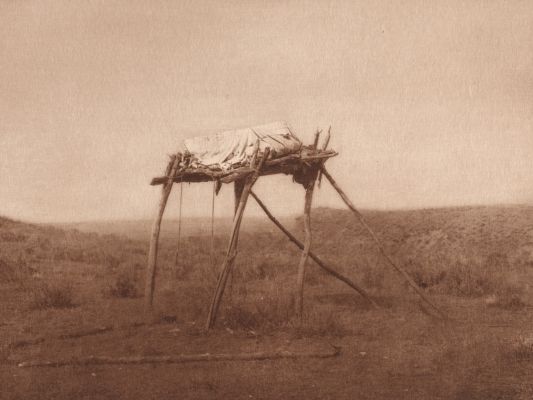Hoka Hey!—Lakota
Sioux, “Today is a good day to die.”
T’suh!—A Comanche equivalent.
Translates to “I’m Ready!” It is always shouted or voiced with emotional
content.
·
Both are used in the context of, “Let’s
Do It!” or “Let’s Roll!”
·
More deeply they mean, “I am ready to
die and what is before me is a worthy endeavor, one a Man can die honorably and
happily doing.”
Tecumseh, a Shawnee Warrior explains it best:
Death is the Whetstone of
the Warrior’s Soul
·
Death is held before the Warrior’s Mind-each
and every day.
·
Not just in the dire times but ALL TIMES—Good
& Bad.
·
Legend has it that Trappist monks would
keep a human skull in their cell and hold it in their hands and incant to
themselves…
“Memento Mori, Memento
Vivere.”
[“Remember you
must die, so remember to live.”]
·
The practice is actually older than that,
it is one of Stoic practice.
·
We find it as early as Socrates and growing
stronger in Roman stoic culture.
·
We see it just as powerfully in the
Warrior tribes of the Plains.
·
A stark contemplation of the earthy facts
of death honed the mind and spirit like a strop for a razor.
We see it rear its head in dire times.
“There is but one truly serious philosophical
problem, and that is suicide. Judging whether life is or is not worth living
amounts to answering the fundamental question of philosophy.”—Albert Camus,
The Myth of Sisyphus
·
Many read that as the epitome of nihilism,
but…it is actually the opposite.
·
He goes on to say…
“In short the answer I give could be my last. So, I
had better find a reason for living.”
·
This is anything but nihilism.
·
It is “Hoka Hey!” it is “T’suh!”
·
It is saying…
“I have awakened again this morning. Am I here to
merely exist, to soften food via mastication to fuel aimless pursuits, ponder
my false starts, my broken promises to a decaying self, waiting to move my
bowels and repeat this process to the grave?
Does this day bring me joy?
Do I bring this day joy?
I can stare the skull in the face and make
the decision to depart.
Or do I make the decision to LIVE!”
·
Our bodies moving around on this Planet
are evidence that we have made the decision to Live over Suicide.
·
A decision to Be.
·
The Warrior asks Daily, “Do I want to
Live?”
·
The Warrior Answer is always “Yes!” “Hoka
Hey!” “T’suh!”
· The Warrior Question is Never “Do I wish to merely exist.”
Our lives are literally what we pay
attention to.
“We must reflect that, when we reach the end of our
days, our life experience will equal what we have paid attention to, whether by
choice or default. We are at risk, without quite fully realizing it, of living
lives that are less our own than we imagine.”—William James
Your life is defined by the value of what you are paying
attention to at each given moment.
So what is your life worth today?
·
A rant about the Dems/Repubs?
·
A few more intimate moments with a Smartphone?
·
A game controller in indolent hands?
· Just one last browse of Pornhub, the last time, I promise.
We must LIVE, but always with an eye on the fact that
we will die. With that end goal in mind we must always ask, “Would a Warrior
die honorably, die happily in the midst of what I am doing right now?”
·
Could a Warrior die happily defending Love?
Yes!
·
Could a Warrior die with no regrets laughing
and looking in the eyes of a Loved One? Yes!
·
Could a Warrior die honorably playing a
game with a child? Yes!
We are what we do—This Moment. The Next Moment. All
Moments Until We are No More.
“Memento Mori, Memento
Vivere.”
“Hoka
Hey!”
“T’suh!”
With the option of Suicide on the table we must
Embrace one of the Important Multiple Choice Questions: Do I choose to Live? To
Die? Or to Exist?
If to live, look the facts of Life in the eyeless
socket of a skull, smell decaying meat, shy away from no realities—allow these images,
odors and tastes on the back of the tongue to fuel the Warrior Fire of Now and
Every Moment!
We are what we Pay Attention to.

What are you worth right now?
May it be precious. May it be worthy.
“We must die sometime. What difference
whether it be tonight, tomorrow night, or a year hence, just so that we have
lived—and I have lived!"—Edgar
Rice Burroughs, Tarzan the Untamed
“Memento Mori, Memento Vivere.”
“Hoka Hey!”
“T’suh!”
“When your time comes to die, be not like
those whose hearts are filled with fear of death, so that when their time comes
they weep and pray for a little more time to live their lives over again in a
different way. Sing your death song, and die like a hero going home.”
Life-Deciders, Come on the
Warrior Journey with me! Resources below.
The Black Box Combat & Conditioning Training Warehouse
The Rough ‘n’ Tumble Raconteur Podcast



Comments
Post a Comment